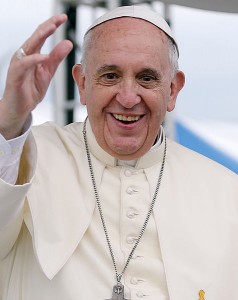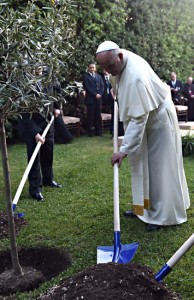Vatican Call to Action
Vatican Call to Action
|
“Praised Be: On the Care of Our Common Home” (Laudato Si’). View the english text of encyclical here. A Papal encyclical is a letter sent by the Pope to the bishops of the world and to the entire Catholic population across the globe. Additional, Pope Francis is addressing a wider audience. During his weekly blessings in St. Peter’s Square this past Sunday, Pope Francis said, “This encyclical is aimed at everyone: Let us pray everyone can receive its message and grow in responsibility toward the common home that God has given us.” This is the first encyclical in the history of the Vatican to address environmental concerns. Pope Francis has declared climate change and environmental protection as related moral, social, and ecological issues. The encyclical is bringing much needed global attention and focus to these issues, and aims to serve as a motivating force for the over one billion Catholics of the world and many other people of spiritual and environmental conviction. This is a deeply spiritual document that needs to be fully received holistically to fully embrace its significance. We wish to deeply honor and respond in ways that are respectful to this process. When the Pope is visiting the U.S. in September, NCIPL will be working with Catholic congregations in NC to help hold meetings on the encyclical and how we can put our “faith into action” across through collaboration across the state. Please contact info@ncipl.org if you would like to participate in the planning of local events in your area!
|




 This post is from our friend
This post is from our friend 

